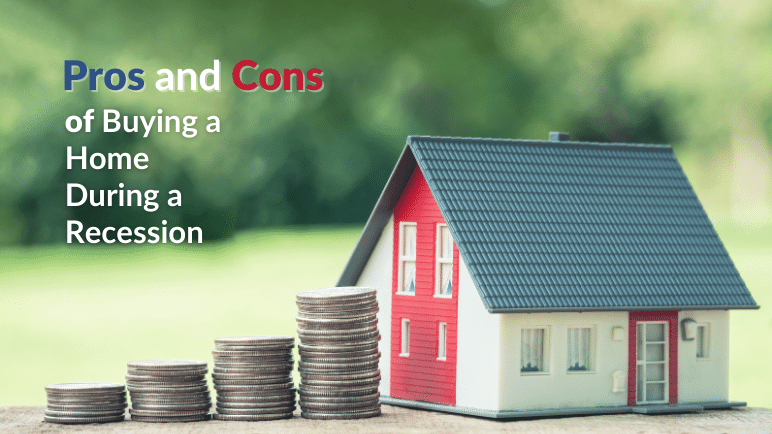
There’s always a chance that the economy is contracting, and our investments will lose value when the term “recession” is utilized in the market. Some investors continue to invest during downturns despite their negative impacts because they believe they will only last a short while.
The majority of customers are worried about how long the recession will last. Others, however, are ready to risk investing because they believe their investments will increase in value by two or even three times following the crisis.
WHAT IS A RECESSION?
A recession occurs when the GDP declines for at least six months. The recession will end when the GDP reaches its pre-recession levels. Recession can happen for several causes, including major economic shocks.
Last 2020, the coronavirus epidemic caused businesses and economies to collapse globally and is to blame for the most recent recession. Additionally, it was the briefest recession ever as the economy rose because it gave society many opportunities.
WHAT CAUSES RECESSION?
Knowing what causes recession could help us prepare and know what needs to be adjusted in a particular situation. Below are some of the reasons:
- Affordability – if a house value is high, investors are advised to decrease its price because most properties are in low demand and won’t sell themselves.
- False Demand – this is one of the reasons that recession happens. It’s because there are demands that most investors believe are more critical but are not.
- Hardcore Economic Recession – when there’s an economic recession, the economy shuts off, resulting in hardship in all quarters. The demand for housing consequently declines as people are more concerned about earning a living and making ends meet.
COVID-19 AND INVESTMENTS DURING PANDEMIC
Most investments were affected during the pandemic, especially in the real estate field. Why? Most people stayed in their homes, and selling houses was not essential.
Most investors who made their investments during the recession are profiting more as time passes and the economy starts to recover from the crisis sluggishly. Real estate agents might be able to recoup their investments with the help of other eager investors.
PROS OF BUYING/INVESTING HOME DURING THE RECESSION
Even in a recession, most people find investing advantageous since they will benefit when the economy recovers. Here are some points to consider:
- Lower Prices – Real estate property prices are soft in this situation, and most investors are seizing this chance despite the weak demand. People with budgeted income have a chance since, in this situation, even though it’s down, there will undoubtedly be an increase after several months of recession.
- Low Mortgage Prices – As a result, banks cut all their rates, including the mortgage rate. You will eventually pay less for your property if your mortgage rate is lower. It might result in considerable savings, depending on how common the speed drops.
CONS OF BUYING/INVESTING IN A HOME DURING A RECESSION
Before deciding to purchase a property amid a recession, there are a few things to consider:
- Job Uncertainty – is the main factor an individual needs to consider. During a typical recession, unemployment rates spike, putting many positions at risk of reduction or termination. Things can change quickly, even if you believe your industry or job is stable. Also, remember that one expense associated with the property is the mortgage. Make sure your job security is your priority if you don’t want to face foreclosure.
- Title Issues – There can be title problems that affect your home purchase if the previous owners of the house you wish to buy were severely indebted or perhaps went into foreclosure. Make sure that your title firm conducts a very comprehensive search.
- Competition – Despite the possibility of fewer homebuyers during a recession, you can find yourself in a bidding war for a house with investment firms. These businesses are in place to earn money and know that prices are lower during a recession.
Before purchasing a home during a recession, you must honestly assess your financial condition and carefully consider the advantages and disadvantages. However, if you are confident in your finances and your financial future, you may be able to acquire your ideal home at a lesser price than you anticipated!
Difficulty Selling your Property – During a recession, selling your current home may be challenging if you need to acquire a new one. Your home might sell for less money than you anticipated, or it can take longer depending on the local market.
Banks are Less likely to Lend Money – Banks understand how economic uncertainty can affect anyone’s job. So, they are less likely to approve mortgages out of fear of having to foreclose on a home — a lengthy legal process.
CONCLUSION
A housing crash is a result of every recession. However, while some may claim that investing during a downturn will result in a loss of capital, others will seize this chance because a recession is a wealth transfer.
Maintain a stable financial position for ten years to prepare you for another recession or catastrophe.

